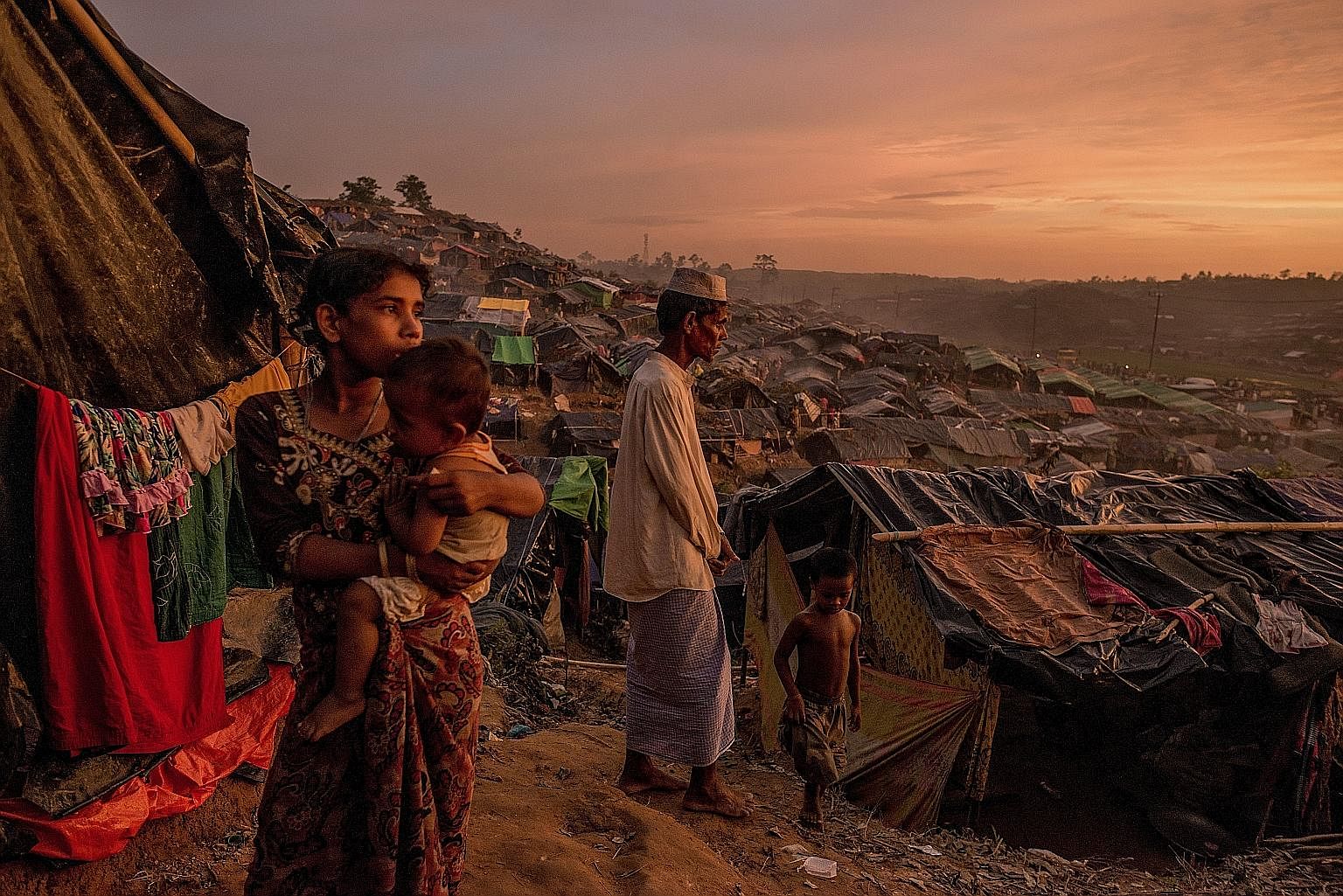The Rohingya crisis in Myanmar has stirred international outrage and stoked calls for sanctions.
Last Wednesday, the US declared the violence against Myanmar's Muslim minority in Rakhine an act of "ethnic cleansing". US Secretary of State Rex Tillerson also issued a warning at the same time that those responsible for the murders, rapes and other "horrendous atrocities" will not go unpunished. "The United States will also pursue accountability through US law, including possible targeted sanctions," he said.
There is growing sentiment in the US for action that will punish elements of the military as well as local vigilantes for the atrocities that have led to hundreds of thousands of people fleeing across the border to Bangladesh.
Earlier this month, senators Ben Cardin and John McCain, in a bipartisan effort, introduced S. 2060 -The Burma Human Rights and Freedom Act of 2017. This calls for targeted sanctions and travel restrictions on military individuals involved in or responsible for the tragic events in Rakhine.
Imposition of sanctions is a relatively easy and emotional response to tragic or dangerous situations. And as emotions run very high, international indignation is certainly understandable. But will they have the desired effect or simply intensify issues?
From the outset, the myths on both sides of the divide have posed a major stumbling block to any easy solution. The Burmese state believes the Rakhine Muslims are all Bengalis who do not belong in Myanmar and should go to Bangladesh, while the Rohingya say they have been in Burma/Myanmar for centuries. Both are partly right, but the Burmese state refuses to recognise them as an indigenous ethnic group, which under the 1982 citizenship law would allow them citizenship. They have virtually no rights in Myanmar.
There is also an inconsistency in most approaches to the refugee problem. Although ethnic cleansing is not a legal issue under international law, ethnic peoples so expelled should have the right to return. But right and reality are in conflict.
Myanmar does not want them back - that is what prompted ethnic cleansing in the first place. From past official positions and widespread Burmese popular sentiment, including powerful Buddhist voices and institutions, there seems little interest in having them return.

But Bangladesh does not want them either. Such is the antipathy that some officials are said to have wanted to isolate them on islands in the Bay of Bengal where they would be tragically subject to the annual typhoons that cause massive destruction in that region.
Both the Myanmar and Bangladesh governments under pressure have signed some formal agreement to cooperate in the return of the refugees, but even if foreign powers and humanitarian organisations assist in that process, many will still not want to return to conditions of deprivation.
Furthermore, will any form of sanctions, however carefully targeted, have the positive effect of improving the lives of the Rohingya?
The dismay and disapproval under which the Myanmar government, both the military and civilian leadership, are already under will likely negatively affect Western investment in that state, although it probably will do nothing to influence both Chinese and Japanese businesses. Sanctions will add little to economic pressure and may instead increase resentment and hostility.
What will it take to eliminate sanctions once imposed? And are those requirements credible? These are questions that should be asked before action is taken. Supposing some Rohingya return and are treated as they were before the recent violence (in other words, extremely deprived-bad economically and socially but without violence), and some military officials punished, will sanctions be lifted? This seems unlikely without improvement in the rights of the Rohingya, which also seem very distant.
As we have seen in previous cases, the introduction of sanctions is easy; rescinding them is very complex.
Certainly, increased economic humanitarian assistance should be forthcoming, and the US is to be applauded for major increases in that effort.
Hard private talks are also needed with both military and civilian leadership. But will sanctions increase already significant tensions between the Burmese military and the civilian leadership, with perhaps the military claiming that, given historical precedent, this may be at Ms Aung San Suu Kyi's instigation? I don't believe it is, but the military may well think so.
The military has committed extreme violence and has acted without the basic considerations of humanity. Yet we must recognise that Burmese sentiment - popular and leadership, military and civilian, are inordinately opposed to providing any semblance of humanity towards the Rohingya. But we should not cut off contact with the military, and we need more training for them, not in lethal aspects of warfare, but in the obligations and roles of the military in open societies.
The tragedy that has already caused so much horror and degradation may not be alleviated by sanctions. Change has to come internally from the civilian, military, and religious leaders of that state.
While there is little sign that this is happening, external efforts should be focused on helping shift that internal Burmese debate.
• The writer is Distinguished Professor of Asian Studies Emeritus at Georgetown University.
